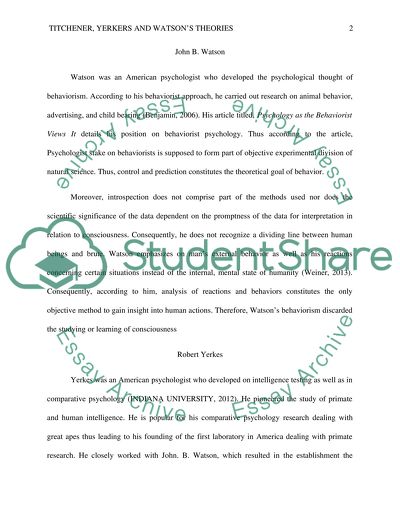Cite this document
(“Titchener, Yerkes and Watson's Theories Essay Example | Topics and Well Written Essays - 1250 words”, n.d.)
Titchener, Yerkes and Watson's Theories Essay Example | Topics and Well Written Essays - 1250 words. Retrieved from https://studentshare.org/psychology/1464590-titchener-yerkes-and-watson-s-theories
Titchener, Yerkes and Watson's Theories Essay Example | Topics and Well Written Essays - 1250 words. Retrieved from https://studentshare.org/psychology/1464590-titchener-yerkes-and-watson-s-theories
(Titchener, Yerkes and Watson'S Theories Essay Example | Topics and Well Written Essays - 1250 Words)
Titchener, Yerkes and Watson'S Theories Essay Example | Topics and Well Written Essays - 1250 Words. https://studentshare.org/psychology/1464590-titchener-yerkes-and-watson-s-theories.
Titchener, Yerkes and Watson'S Theories Essay Example | Topics and Well Written Essays - 1250 Words. https://studentshare.org/psychology/1464590-titchener-yerkes-and-watson-s-theories.
“Titchener, Yerkes and Watson'S Theories Essay Example | Topics and Well Written Essays - 1250 Words”, n.d. https://studentshare.org/psychology/1464590-titchener-yerkes-and-watson-s-theories.


